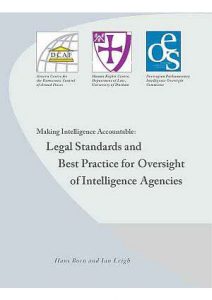
This publication classifies and evaluates the legal standards that currently exist regarding the democratic accountability of intelligence services. The publication also identifies and recommends best practices applicable to both transition countries and well-established democracies.
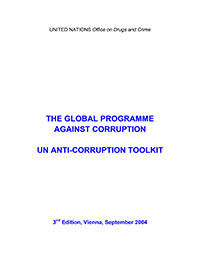
The United Nations Anti-Corruption Toolkit contains a detailed set of specific Tools intended for use by officials called upon to elaborate elements of a national anti-corruption strategy and to assemble these into an overall strategic framework, as well as by officials called upon to develop and implement each specific element. Case Studies, setting out practical examples intended to illustrate the use of individual tools and combinations of tools in actual practice are included in the Toolkit. They provide information about the conditions under which a particular programme will or will not work and how various tools can be adapted or modified to suit the circumstances in which they are likely to be used.
For more information please
download the document Eng
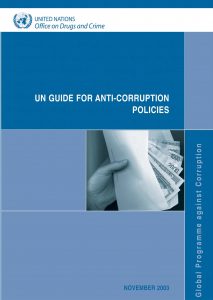
The United Nations Guide on Anti-Corruption Policies, which contains a general outline of the nature and scope of the problem of corruption and a description of the major elements of anti-corruption policies, is suitable for use by political officials and senior policy-makers.
For more information please
download the document Eng
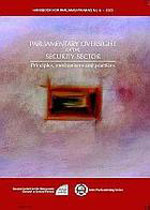
Parliaments have a vital role to play in the good governance of the security sector and the provision of transparent and accountable public security. This handbook is divided into eight sections, each containing several chapters and can be read in two different ways. A complete reading of the Handbook will provide the most comprehensive understanding of security issues and the role of parliamentary oversight. However, it is also possible to make a selective reading of those sections and chapters which are of particular concern to the user. The index and various cross-references are designed for this purpose. Throughout the Handbook, there are separate boxes which clarify complex issues in the main text, provide examples of laws or regulations, and highlight practices of parliamentary oversight of the security sector in various countries. At the end of most chapters, there is a section called “what you can do as a parliamentarian," where concrete recommendations are given. However, these recommendations must be observed from the national context.
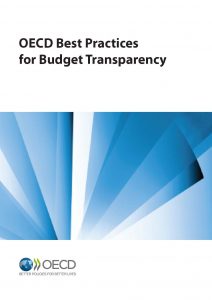
This is a reference tool for member and non-member countries to use in order to increase the degree of budget transparency in their respective countries. The Best Practices are organised around specific reports for presentational reasons only. Different countries will have different reporting regimes and may have different areas of emphasis for transparency. This publication is based on different member-countries’ experiences.
For more information please
download the document Eng
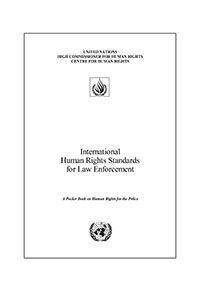 This "pocket book" is designed to provide a readily accessible and portable reference for police committed to the lawful and humane performance of their vital functions in a democratic society. The pocket book contains hundreds of relevant standards, reduced to common language and point-form, and drawn from over thirty international sources.
This "pocket book" is designed to provide a readily accessible and portable reference for police committed to the lawful and humane performance of their vital functions in a democratic society. The pocket book contains hundreds of relevant standards, reduced to common language and point-form, and drawn from over thirty international sources.
For more information please
download the document Eng
Page 8 of 8



